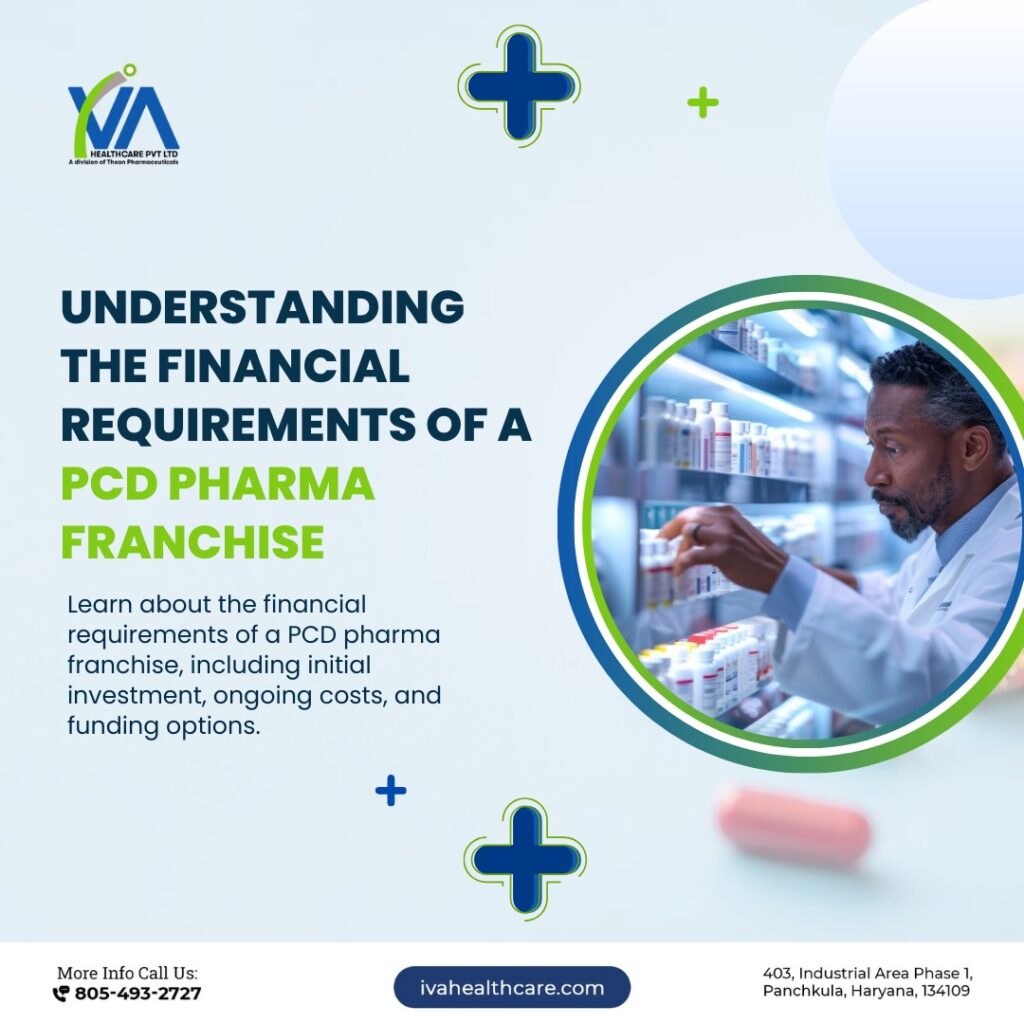Starting a PCD (Propaganda-Cum-Distribution) pharma franchise can be a profitable venture, but it’s important to understand the financial requirements involved. This guide will walk you through the key financial aspects of starting and running a PCD pharma franchise.
Initial Investment Costs
The initial investment is the money you need to start your PCD pharma franchise. This includes several key expenses:
1. Franchise Fee: Most PCD pharma companies charge a franchise fee. This fee gives you the right to use the company’s name, products, and support.
2. Drug License: You need a valid drug license to sell pharmaceutical products. The cost varies depending on your location.
3. Business Registration: Registering your business with the appropriate authorities involves fees. This ensures your business is legally recognized.
4. Office Setup: You need an office to run your franchise. This includes costs for renting or buying office space, furniture, and equipment.
5. Inventory: You need to stock up on pharmaceutical products before you start selling. The cost of the initial inventory can be significant.
Estimated Initial Costs:
- Franchise Fee: $5,000 – $20,000
- Drug License: $500 – $2,000
- Business Registration: $300 – $1,000
- Office Setup: $2,000 – $10,000
- Initial Inventory: $10,000 – $50,000
Ongoing Costs
Running a PCD pharma franchise involves ongoing costs. These are the regular expenses you need to cover to keep your business running smoothly.
1. Rent and Utilities: If you rent office or storage space, you need to pay monthly rent. Utilities like electricity, water, and internet also add to the costs.
2. Salaries: You need to pay salaries to your employees. This includes sales representatives, office staff, and any other personnel.
3. Marketing and Promotion: Marketing is essential to attract customers. This includes costs for advertising, promotions, and maintaining an online presence.
4. Inventory Replenishment: You need to keep your stock updated. Regularly purchasing new inventory is a continuous expense.
5. Miscellaneous Expenses: Other expenses include transportation, insurance, and maintenance of office equipment.
Estimated Monthly Costs:
- Rent and Utilities: $1,000 – $5,000
- Salaries: $2,000 – $10,000
- Marketing: $500 – $3,000
- Inventory Replenishment: $5,000 – $20,000
- Miscellaneous: $500 – $2,000
Funding Options
Securing funding is crucial to cover the initial and ongoing costs. Here are some common funding options:
1. Personal Savings: Using your savings is a common way to fund a new business. It involves no debt and interest payments.
2. Bank Loans: Banks offer business loans specifically for starting a new business. You need a solid business plan to apply for a loan.
3. Investors: You can seek investment from individuals or venture capitalists. They provide funds in exchange for a share of your business.
4. Government Grants: Some governments offer grants and subsidies for small businesses. Research if there are any available in your area.
5. Partnerships: Partnering with someone can help share the financial burden. This could be a business partner or another company.
Financial Planning
Proper financial planning is essential to ensuring the success of your PCD pharma franchise. Here are some tips:
1. Create a Detailed Business Plan: A business plan outlines your goals, strategies, and financial projections. It helps you understand your financial needs and plan accordingly.
2. Keep Track of Expenses: Maintain a detailed record of all expenses. This helps you understand where your money is going and identify areas to cut costs.
3. Monitor Cash Flow: Ensure you have enough cash to cover your expenses. Regularly monitor your cash flow to avoid any financial shortfalls.
4. Set a Budget: Create a budget for your business. Stick to it as much as possible to avoid overspending.
5. Plan for Contingencies: Unexpected expenses can arise at any time. Set aside some funds for emergencies.
Conclusion
Understanding the financial requirements of a top PCD pharma franchise is crucial for success. By knowing the initial and ongoing costs, exploring funding options, and planning your finances carefully, you can set your franchise up for long-term success. Remember, financial planning is an ongoing process, so regularly review and adjust your plans as needed.

